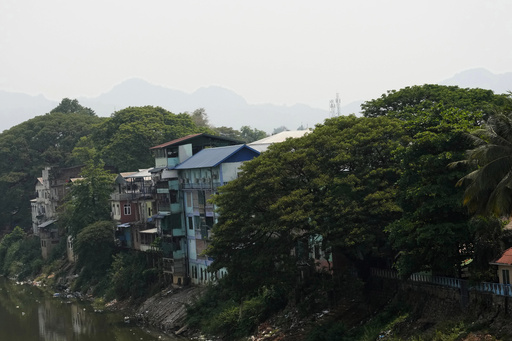
BANGKOK — On Wednesday, Thailand took significant steps to address the growing issue of scam networks operating across its border in Myanmar by cutting off electricity to specific areas known for hosting these criminal activities. This decision follows public demands for the Thai government to actively intervene in the situation.
Regions in Myanmar that border Thailand, particularly Myawaddy and Tachilek, have gained notoriety as hotspots for organized crime syndicates. These groups have coerced countless individuals across Southeast Asia and beyond into participating in various online scams, which include fraudulent romantic schemes, fake investment opportunities, and illicit gambling operations. The consequences of these scams are staggering, with losses amounting to tens of billions of dollars for victims worldwide. Many of those ensnared in these operations are often misled into believing they are accepting legitimate jobs, only to find themselves trapped in situations akin to virtual slavery.
In a meeting held by Thailand’s National Security Council and other agencies, it was unanimously decided to cut off electricity, internet, and gas supplies to five border towns in Myanmar. The decision was based on a need for national security and the significant harm these scams have inflicted on Thailand. Interior Minister Anutin Charnvirakul, who supervised the implementation of this measure, noted that the revenue from the power supplied to these areas was around 600 million baht (about $17.8 million) annually. He further mentioned that scams are estimated to be causing damage to Thailand amounting to approximately 80 million baht ($2.3 million) every day.
Anutin, who also holds the position of deputy prime minister, pointed out that a provision in the electricity supply contract permits Thailand to halt services for national security reasons. He stated, “Today, the government recognized the need to stop, as our electricity is being used to support those inflicting damage on our country.”
Myanmar, Cambodia, and Laos have emerged as major hubs for online scams, with Thailand increasingly noted as a transit point for victims of deceptive recruitment practices. Heightened scrutiny from the public emerged recently following a visit by a high-ranking Chinese official to Thailand, intended to foster cooperation in combatting these scam operations, which are largely believed to be orchestrated by Chinese nationals. The Thai Royal Police confirmed that discussions with Liu Zhongyi, China’s Vice Minister of Public Security, included topics such as rescue initiatives and efforts to cut utility services to the regions where these scams are prevalent.
The visit occurred shortly after international headlines were made by the mysterious disappearance of a Chinese actor in Thailand, later found near the Myanmar border where he was reportedly trafficked into a scam operation. In response to these issues, the Chinese government has also pressured Myanmar’s military rulers to crack down on the scam operations, although many of these centers are situated in areas controlled by ethnic rebel factions where law enforcement is weak.
Last month, Thailand’s Cabinet approved new legislation aimed at combating scams, with the law expected to be implemented soon. This legislation mandates that banks and telecom providers assume liability for the losses incurred by victims, and it includes provisions for victims to receive compensation promptly without requiring court intervention.
In 2023, Thailand had previously paused electricity supply to Shwe Kokko and Lay Kay Kaw in the Myawaddy township after the expiration of a contract with the Myanmar government. Despite the interruptions, residents in Mae Sot, a town in Thailand adjacent to Myawaddy, reported that activities in the affected Myanmar towns appeared to continue without major disturbance.

